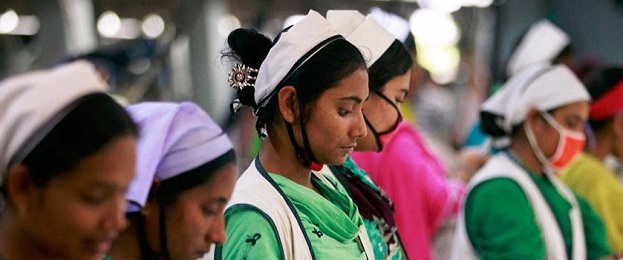


September 12, 2019
BGMEA refutes inconsistent accusations by The Guardian
Bangladesh’s garments sector is often under scrutiny by the Western media, especially around issues about low wage and sexual assault. Compared to that, a story coming from a developed western world, the report in The Guardian, may not be such a surprise after all, but it is unfortunate how it talks about a few isolated cases of sexual assault and does not delve deeply into the measures that are being taken to combat it.
The inaccuracies in these negative campaigns must be looked into carefully. The #MeToo campaign has been phenomenal in addressing widespread sexual abuse against women, but we must remember, it is not a unique Bangladeshi occurrence. In an industry of 4 million workers, a few isolated deviations targeted specifically to highlight the negatives do not define the industry practices.
The report has comprehensively shown case studies of 6 women who have faced sexual assault in the garment industry. But it does not make any effort to go into details of what is being done to tackle this. What’s unfortunate about the report in The Guardian is the arbitrary portrayal of an 80% women harassment rate across the garment industry with no study to back it up. Local studies put the number at 20% - there is still a long way to go, but the disparity in the two reports highlights the inaccuracies in the data presented by The Guardian.
“We end up being portrayed in a negative light because it’s easy to take advantage of the workers and it’s easy to over-generalise every issue of the industry,” asserts Rubana Huq, president of Bangladesh Garments Manufacturers and Exporters Association (BGMEA), and also the first female in the history of Bangladesh to attain this position.
Reports like this undermine the revolution that the garments industry, the financial lifeline for nearly 25,50,000 women, has gone through. It is unfortunate that such reporting happens, and such stories make headlines. A contrasting example would be the New York Times report on sexual harassment of men in the military, published just hours apart, but without any misleading information or subjective accusations.
BGMEA aims to improve the image where the reality is better than it is being portrayed. Progress may not be visible right away, but its existence cannot be discarded. For instance, several measures are being taken to improve the working conditions for women and to contribute to their overall empowerment. Garment factory owners throughout the nation are poised to roll-out a new digital payment system to provide safety and security to female workers. The move will help end practices of female workers being unable to keep their salary due to extortion or family members taking it from them.
Furthermore, BGMEA is continuously striving to offer transparency in areas including the working environment, labor relations, compliance and fair pricing among all the stakeholders. Also, BGMEA notes gender equity as an area for improvement as well. As of now, there is no gender pay gap in Bangladesh’s RMG sector, which employs more than 3 million women. Men and women are paid equally, and if maternity benefits are taken into account, women actually enjoy more benefits than their male counterparts.
The organization addresses there is more to be done. However, as much as responsible supply is to be held in highest standard, the point on responsible journalism must also be judged. The Guardian report clearly aimed to showcase the garment industry in a negative light whereas it ignored the measures being taken to overcome the issues. The overarching generalization did not contribute to its case either.

Copyright © 2020, The Bangladesh Garment Manufacturers and Exporters Association.
Version-2.0, Design & Developed by Systech Digital Limited.
Version-2.0, Design & Developed by Systech Digital Limited.
